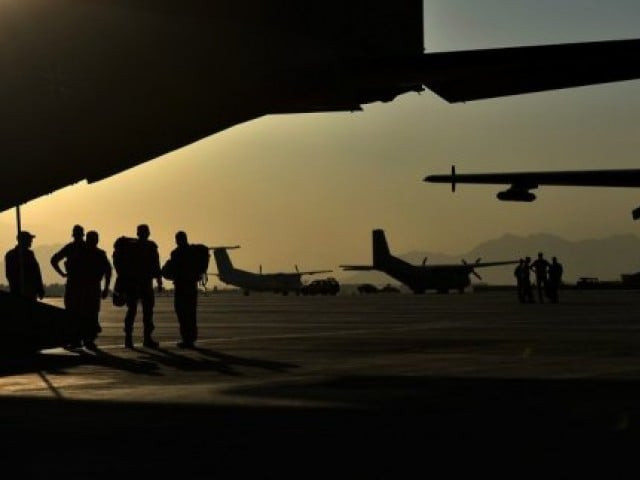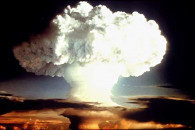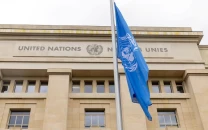Afghan forces will need help after Nato mission ends: Pentagon
Report says sustaining the gains in Afghanistan will depend on the amount of US and NATO forces retained.

"Assessing whether the gains to date will be sustainable will be difficult to do until the exact size and structure of the post-2014 U.S. and NATO presence is determined," according to the report. PHOTO: FILE.
US officials have said the United States could potentially pull out all of its troops from Afghanistan next year, amid tensions between President Barack Obama's administration and the government of Afghan President Hamid Karzai.
However, in the Defense Department's twice-yearly report to Congress on the Afghan war effort suggested that preserving hard-won gains after nearly 12 years of war could depend, at least in part, on the size of whatever force the United States and Nato leave behind after 2014.
The United States has been talking with officials in Afghanistan about keeping a small residual force there of perhaps 8,000 troops, while Nato allies contribute thousands more.
"Assessing whether the gains to date will be sustainable will be difficult to do until the exact size and structure of the post-2014 US and Nato presence is determined," according to the report, titled "Progress Toward Security and Stability in Afghanistan."
The report said the Taliban lost territorial control in 2012 and through the first quarter of 2013 and were "now less capable, less popular and less of an existential threat to the Afghan government than in 2011."
Still, it cautioned that the Taliban remained resilient, benefiting from corruption within an Afghan state that alienates the population and from alleged sanctuaries in Pakistan.
The report alleged that "Pakistan continues to adopt a posture of acceptance," and of occasional support to Afghan-focused insurgent groups that may have attacked US and coalition forces. The longstanding accusations have been rejected by Islamabad.
Some of the most withering criticism in the report was leveled against the Afghan state.
"Unqualified and corrupt political officials in parts of the central government undermine government efficacy and credibility, threatening the long-term stability of Afghanistan," it said.
The report added that the Afghan government's counter-corruption efforts "have shown no substantial progress" beyond acknowledging the existence of large-scale corruption.
Despite the challenges, Afghan security forces have made key gains in strength and capability, the report said, but they would still need assistance and combat support through the end of next year.
"Beyond then it will still require substantial training, advising and assistance - including financial support - to address ongoing shortcomings," the report said.



















COMMENTS
Comments are moderated and generally will be posted if they are on-topic and not abusive.
For more information, please see our Comments FAQ